blog
Book Review: 1864 by Matthew Brandt
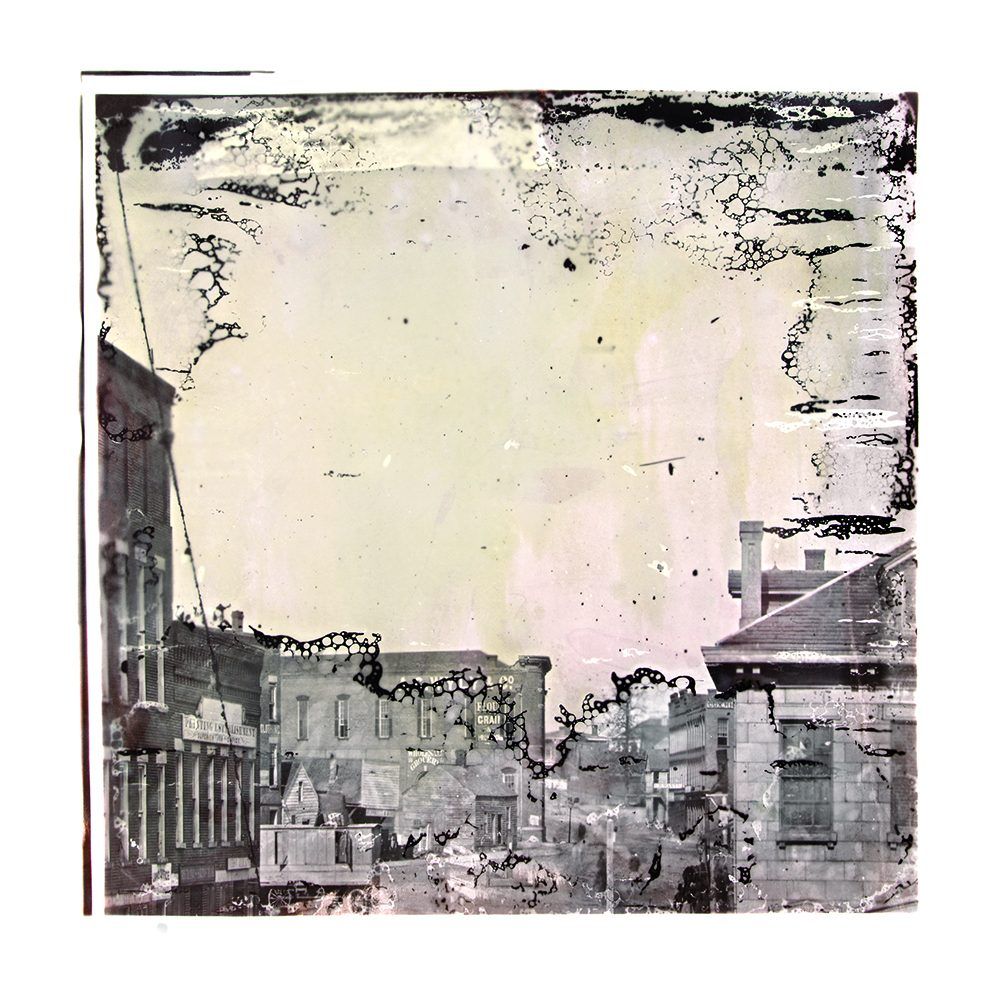
In 1864, Matthew Brandt recreates George N. Barnard’s 19th century images of a devastated, post-Sherman Atlanta. Using source imagery housed at the Library of Congress, he makes new albumen photographs from Barnard’s images. Fortifying the foundational ingredients of the 19th-century albumen print — egg whites, silver nitrate, and salt — with peaches, sugar, flour, cinnamon, and butter, Brandt plays with external assumptions about the South, at the same time revealing a complex understanding of the complicated history his project explores.
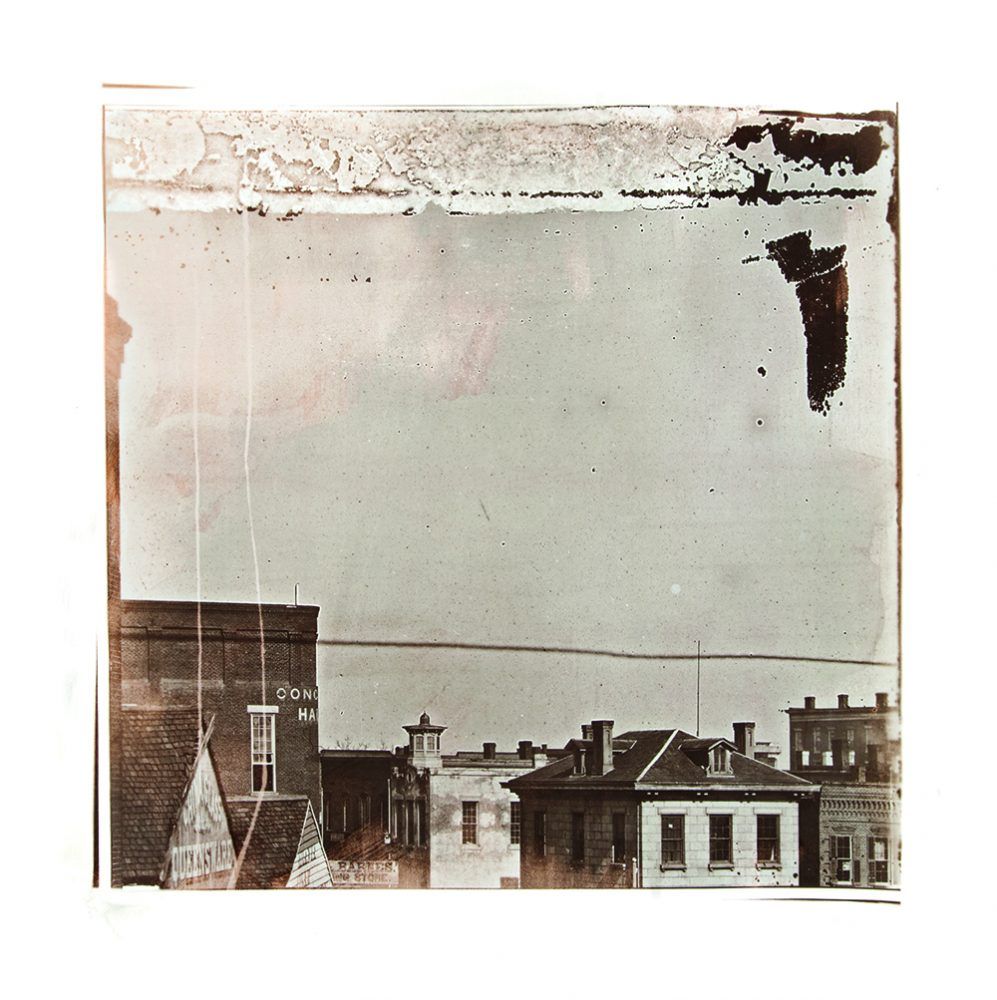
This complexity is addressed in the essay ‘Time and Place’ included by Greg Harris. He speaks to the idea that Brandt seeks to wrestle with the weight of conflict in American society surrounding the Civil War and the lasting impact it has on our culture. Harris also mentions that Brandt came to the work as an outsider with no direct connection to Atlanta or as a resident of the American South. But Brandt wanted to “address the legacy of the Civil War through objects infused with history and place, but spoke to a contemporary context.”
It is worth mentioning to people unfamiliar with Brandt’s work, 1864 does follow in the footsteps as some of his other projects. Brandt incorporates aspects of his subjects into the photographic developing process. His photographs are both of and by their subject. For example, actual source water was used in his portraits of specific Lakes and Reservoirs (in a project by the same name), and he toned Cyan, Magenta, Yellow and Black photo plates with Flint, Michigan contaminated tap water for his project Bridges Over Flint. The distressed images in their final full-color prints are an engaging exploration in how subject matter and process can make a statement on the debacle that plagues the drinking water supply, and directly impacted the lives of the people living there.
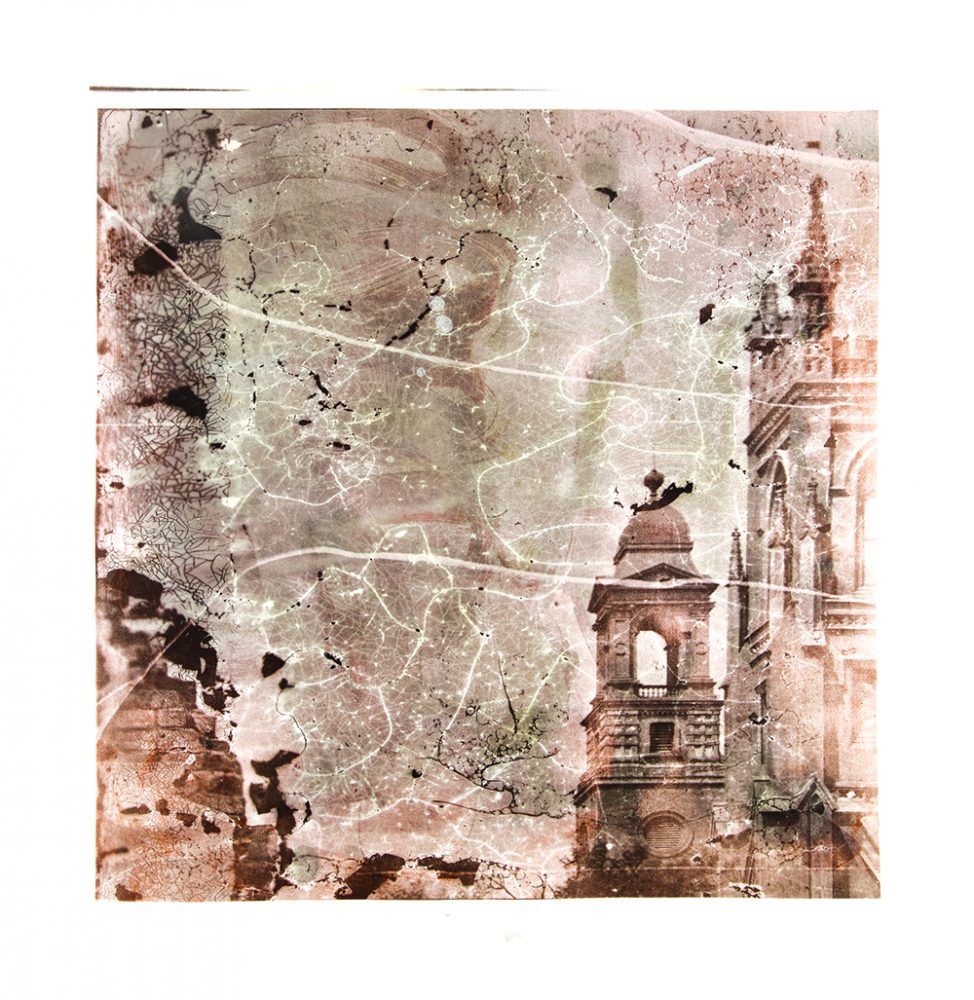
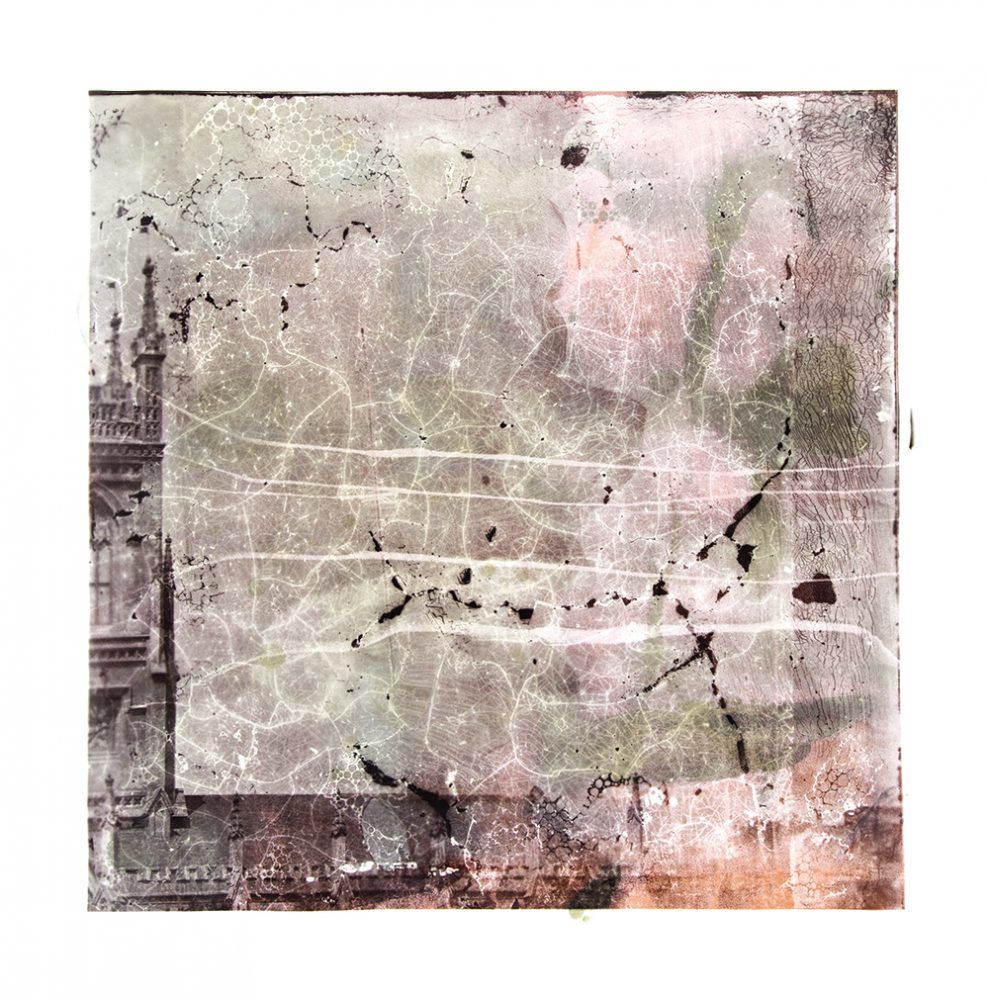
Tongue-in-cheek, aptly conceptualized or not, I can appreciate the manner in which these images were created. I have printed glass negatives from a historic collection, and the flaws, or lack thereof, found in large silver or silver-nitrate negatives produce an image that leaves the viewer with the distinct feeling that they are seeing the same view as the original photographer. A direct contact print from an 8×10 negative is a beautiful, wondrous object. But, images made after a military campaign that crippled the South at the end of the civil war – now suitable to be served with ice cream? Something smacks of either cultural callousness, or witty interplay/overlay of photographic mediums and cooking ingredients to make a comment about the complexity of a 21st century perspective on 19th century America. I cannot decide which way to lean. Perhaps this makes the project stronger; instead of dismissing the work, or losing interest, I’ve sought out the opinion of others and asked myself serious questions about the nature of Brandt’s work.
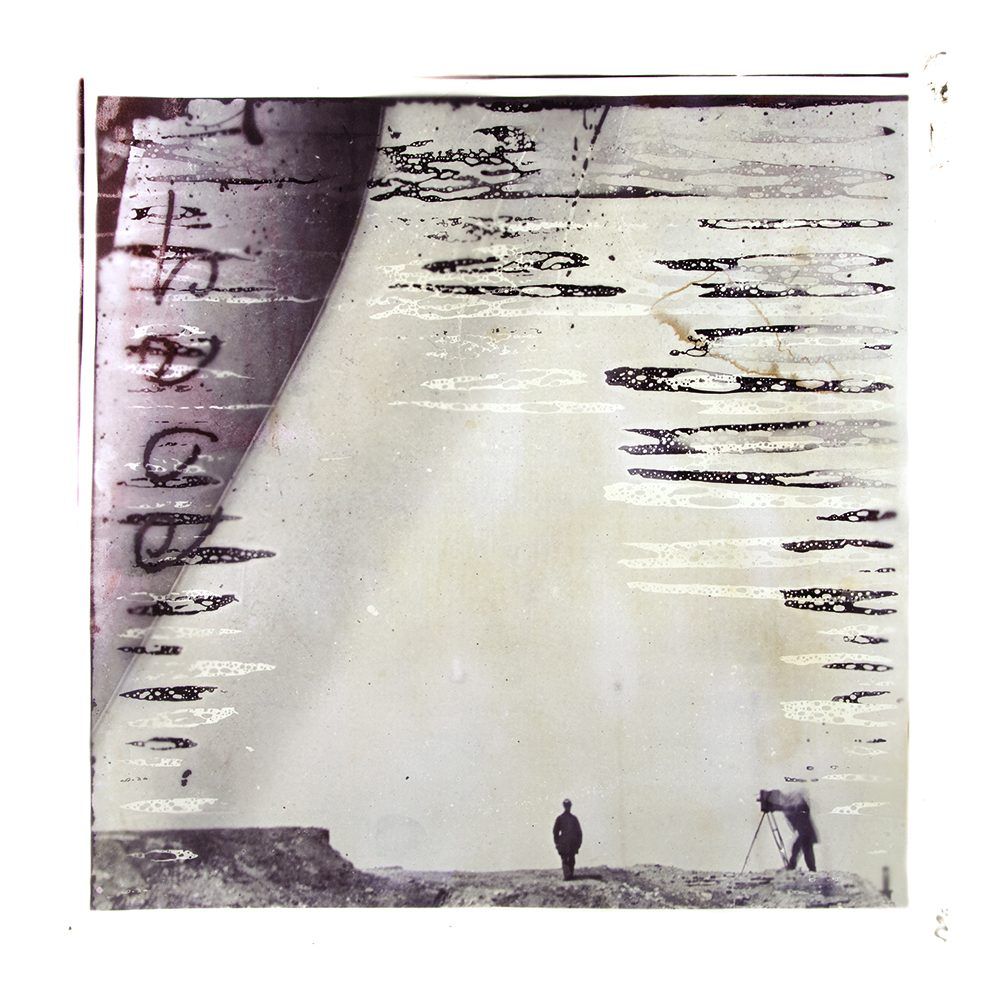
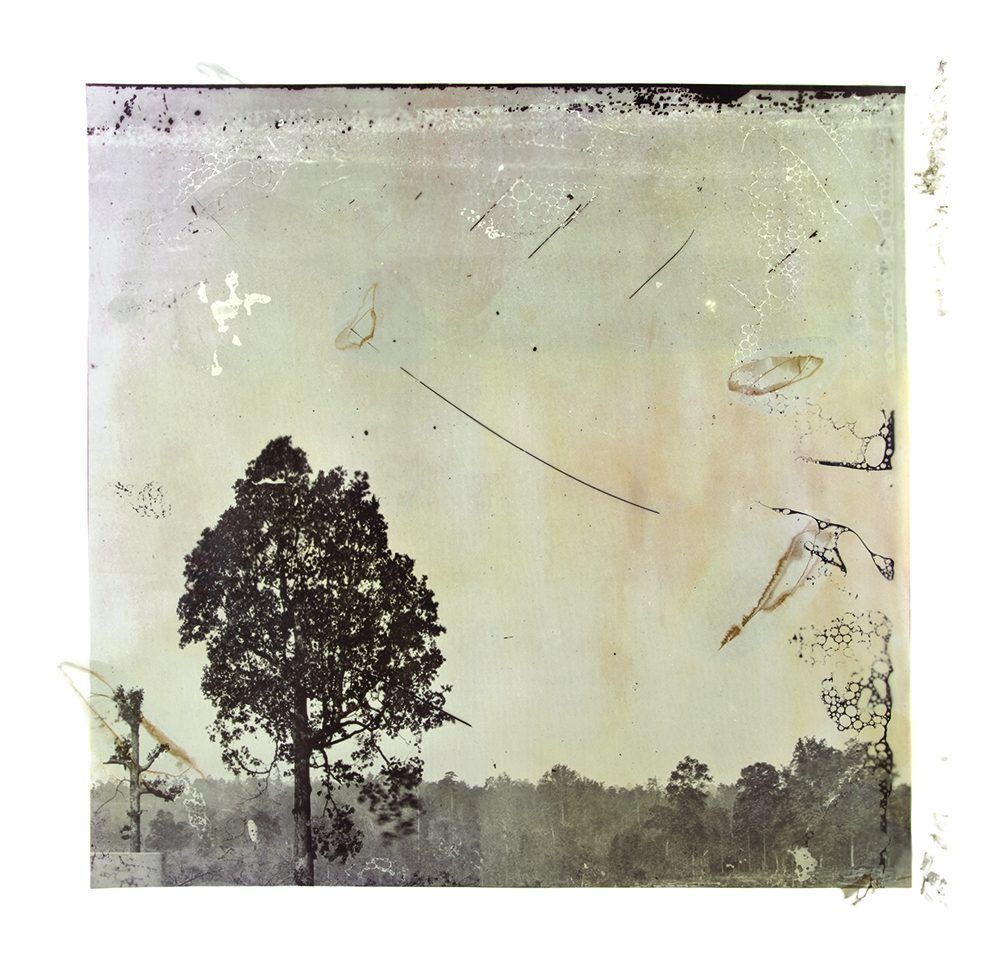
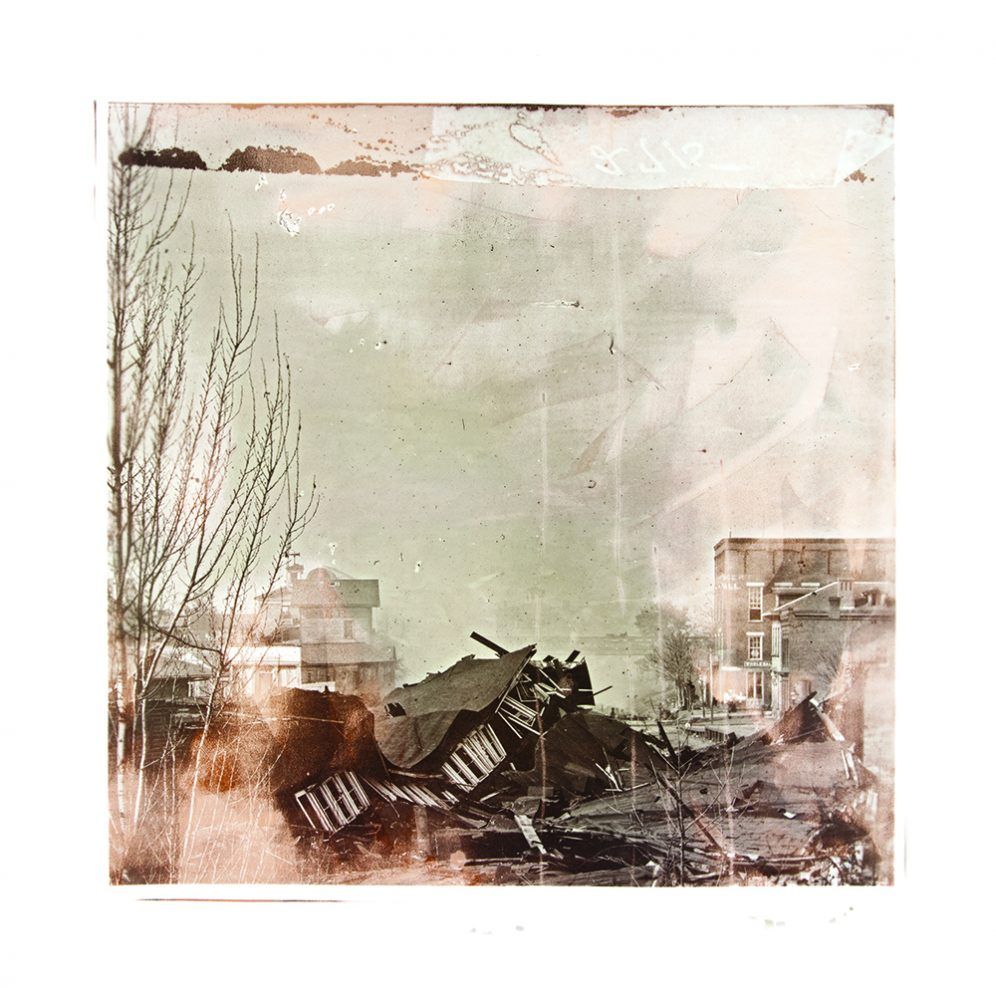
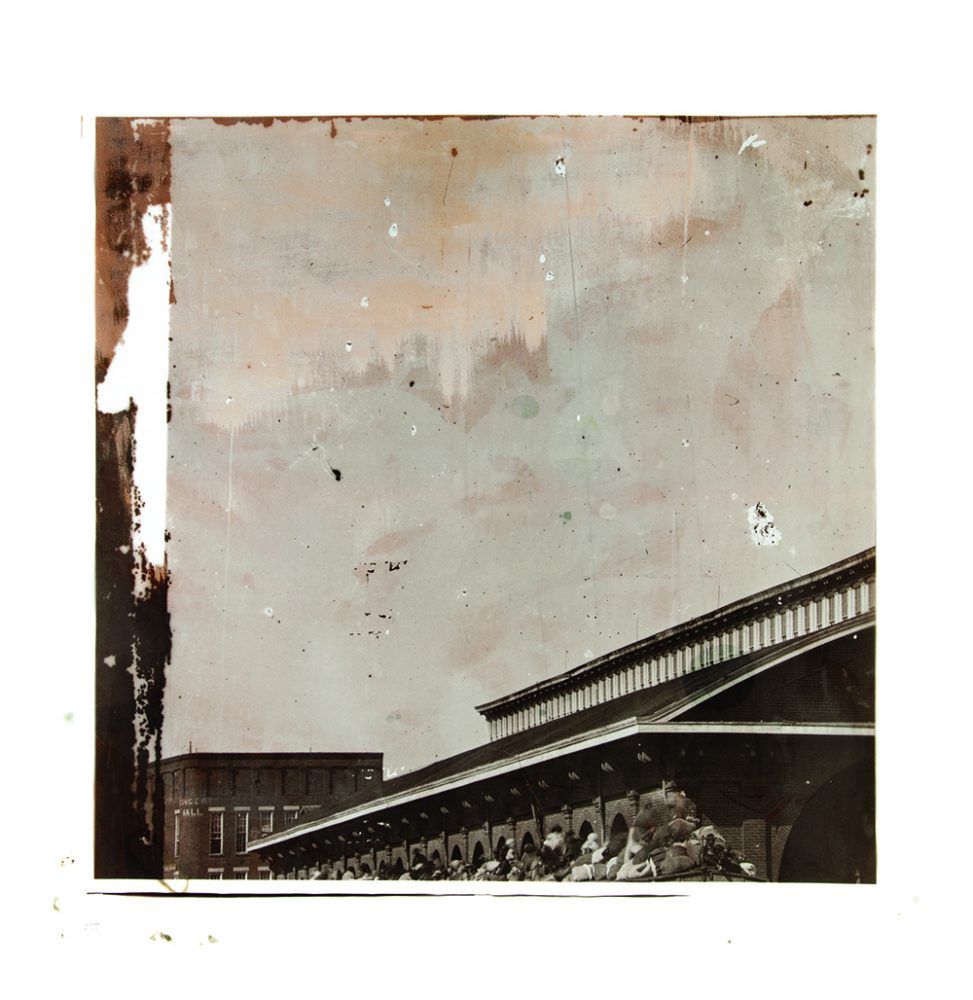
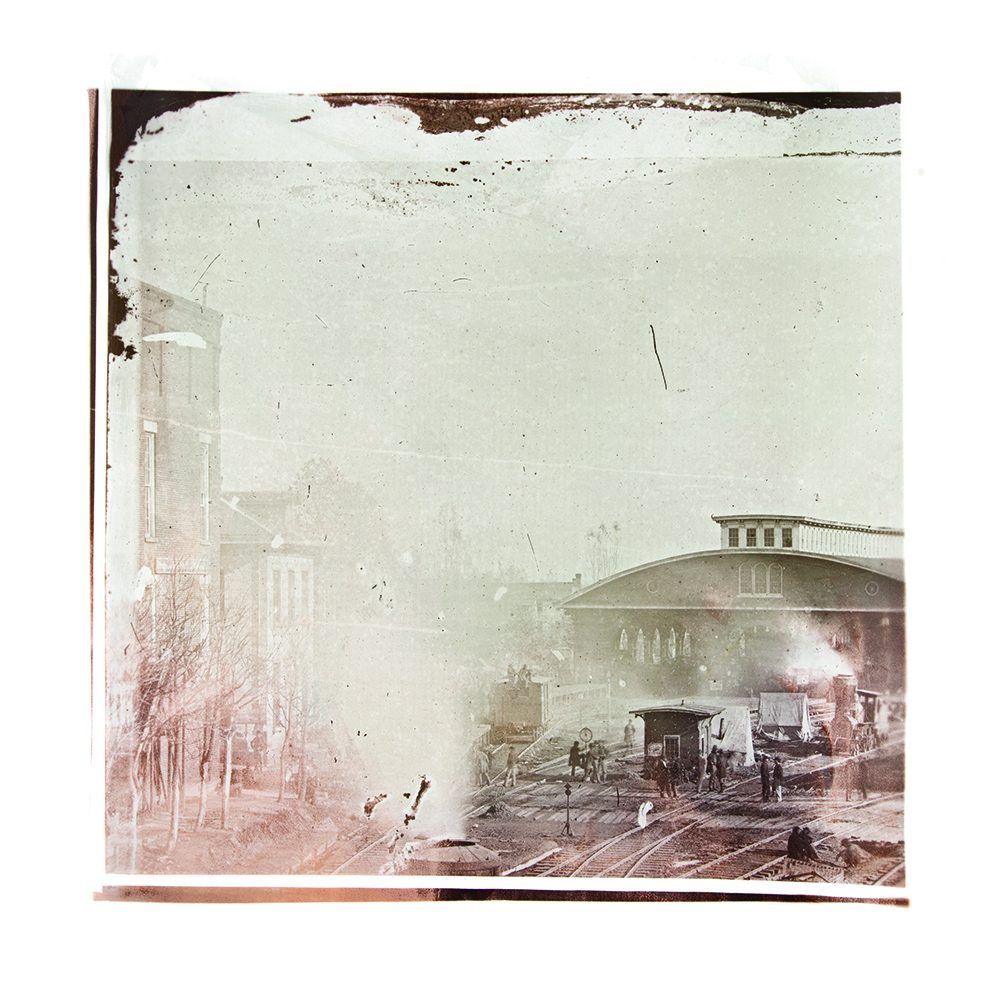
1864 is printed with a full range of tones and a varnish-like layer that adds depth to the images. I applaud Yoffy Press for taking on this project and making the book a well crafted and presented work. The linen cover evokes a sentiment that fits the time period of the original work, and adds a textural layer of meaning to the presentation of Brandt’s images.
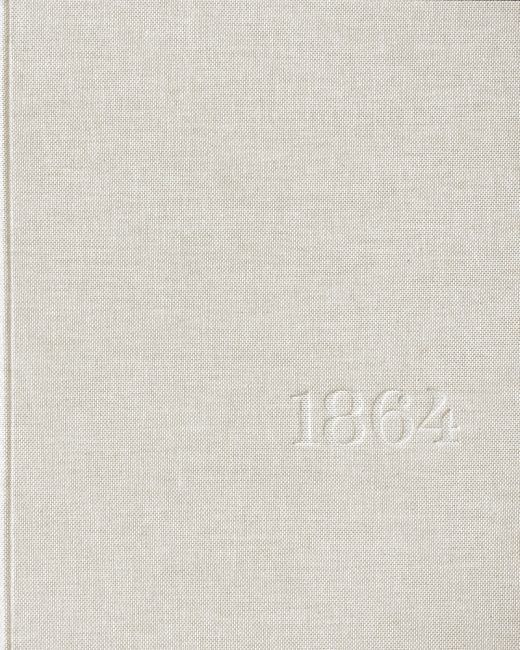
1864
Photographs by Matthew Brandt
Essay by Greg Harris
Hardcover, 10×8 inches
64 pages / 28 images
Limited Edition of 350
ISBN: 978-1-943948-11-6
For more information about the work by Matthew Brandt, please visit his website. To purchase a copy of 1864, please visit the website for Yoffy Press here.
Matthew Brandt is a photographer whose work is in the permanent collections of Metropolitan Museum of Art, New York; National Gallery of Art, Washington, DC; J. Paul Getty Museum, Los Angeles; Brooklyn Museum, New York; and the Los Angeles County Museum of Art, among others. Matthew Brandt was one of seven artists featured in the 2015 exhibition at the J. Paul Getty Museum, Los Angeles, Light, Paper, Process: Reinventing Photography. Brandt was born in California in 1982, received his BFA from The Cooper Union in New York and his MFA from UCLA. He currently lives and works in Los Angeles.
Yoffy Press was founded by Jennifer Yoffy. She founded Crusade for Art in 2013, a non-profit organization whose mission was to engage new audiences with art. Jennifer owned a fine art photography gallery in Atlanta (Jennifer Schwartz Gallery) for five years, and she co-founded Flash Powder Projects, a photographer-focused collaborative venture and publishing company. In the spring of 2013, she traveled around the country in a 1977 VW bus, engaging audiences with photography.
Location: Online Type: Book Review
Events by Location
Post Categories
Tags
- Abstract
- Alternative process
- Architecture
- Artist Talk
- artistic residency
- Biennial
- Black and White
- Book Fair
- Car culture
- Charity
- Childhood
- Children
- Cities
- Collaboration
- Community
- Cyanotype
- Documentary
- Environment
- Event
- Exhibition
- Faith
- Family
- Fashion
- Festival
- Film Review
- Food
- Friendship
- FStop20th
- Gender
- Gun Culture
- Habitat
- Hom
- home
- journal
- Landscapes
- Lecture
- Love
- Masculinity
- Mental Health
- Migration
- Museums
- Music
- Nature
- Night
- nuclear
- p
- photographic residency
- Photomontage
- Plants
- Podcast
- Portraits
- Prairies
- Religion
- River
- Still Life
- Street Photography
- Tourism
- UFO
- Water
- Zine

Leave a Reply